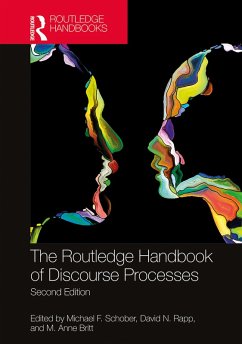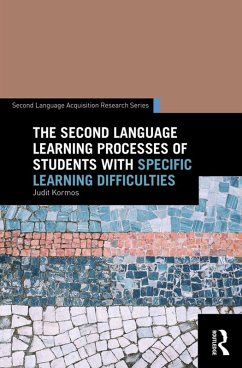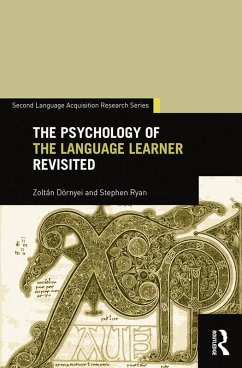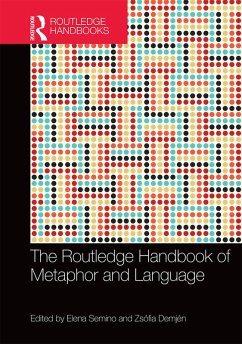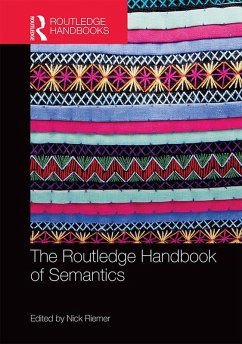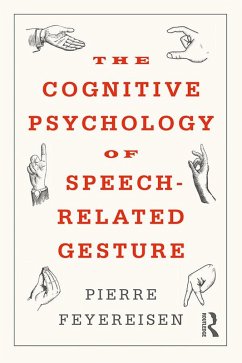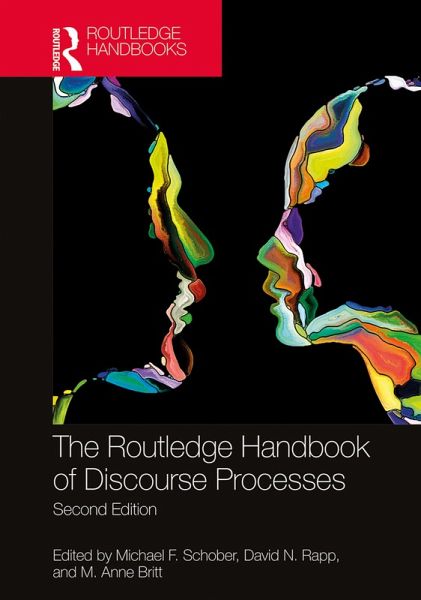
The Routledge Handbook of Discourse Processes (eBook, PDF)
Second Edition
Redaktion: Schober, Michael F.; Britt, M. Anne; Rapp, David N.
Versandkostenfrei!
Sofort per Download lieferbar
47,95 €
inkl. MwSt.
Weitere Ausgaben:

PAYBACK Punkte
24 °P sammeln!
The second edition of The Routledge Handbook of Discourse Processes provides a state-of-the-art overview of the field of discourse processes, highlighting the subject's interdisciplinary foundations and bringing together established and emergent scholars to provide a dynamic roadmap of the evolution of the field.This new edition reflects several of the enormous changes in the world since the publication of the first edition-changes in modes of communication and an increased urgency to understand how people comprehend and trust information. The contents of this volume attempt to address fundame...
The second edition of The Routledge Handbook of Discourse Processes provides a state-of-the-art overview of the field of discourse processes, highlighting the subject's interdisciplinary foundations and bringing together established and emergent scholars to provide a dynamic roadmap of the evolution of the field.
This new edition reflects several of the enormous changes in the world since the publication of the first edition-changes in modes of communication and an increased urgency to understand how people comprehend and trust information. The contents of this volume attempt to address fundamental questions about what we should now be thinking about reading, listening, talking, and writing. The chapters collected here represent a wide range of empirical methods currently available: lab or field experiments, with a range of measures, from quantitative to qualitative; observational studies, including classrooms or organizational communication; corpus analyses; conversation analysis; computational modeling; and linguistic analyses. The chapters also draw attention to the explosion of contextually rich and computationally intensive data analysis tools which have changed the research landscape, along with more contemporary measures of people's discourse use, from eye-tracking to video analysis tools to brain scans. The Routledge Handbook of Discourse Processes, Second edition is the ideal resource for graduate students, researchers, and practitioners in a variety of disciplines, including discourse analysis, conversation analysis, cognitive psychology, and cognitive science.
This new edition reflects several of the enormous changes in the world since the publication of the first edition-changes in modes of communication and an increased urgency to understand how people comprehend and trust information. The contents of this volume attempt to address fundamental questions about what we should now be thinking about reading, listening, talking, and writing. The chapters collected here represent a wide range of empirical methods currently available: lab or field experiments, with a range of measures, from quantitative to qualitative; observational studies, including classrooms or organizational communication; corpus analyses; conversation analysis; computational modeling; and linguistic analyses. The chapters also draw attention to the explosion of contextually rich and computationally intensive data analysis tools which have changed the research landscape, along with more contemporary measures of people's discourse use, from eye-tracking to video analysis tools to brain scans. The Routledge Handbook of Discourse Processes, Second edition is the ideal resource for graduate students, researchers, and practitioners in a variety of disciplines, including discourse analysis, conversation analysis, cognitive psychology, and cognitive science.
Dieser Download kann aus rechtlichen Gründen nur mit Rechnungsadresse in A, B, BG, CY, CZ, D, DK, EW, E, FIN, F, GR, HR, H, IRL, I, LT, L, LR, M, NL, PL, P, R, S, SLO, SK ausgeliefert werden.




